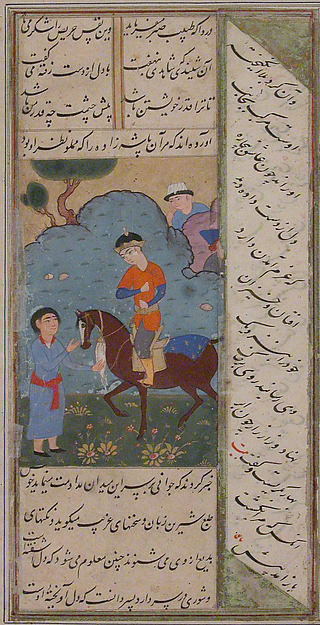FWP:
On the clever, colloquially enjoyable placing and use of bas , see {210,1}, in which it's placed and used almost identically.
Bekhud's sarcastic reading of the first line adds an excellent fillip to the verse.
Of course, the verse can also be read as a report of a successful transaction, one in which the complaint is instantly resolved, and exactly along the lines that the complainer desires. After all, we know from many verses, such as {19,4}, that the lover longs to be fully, satisfyingly, once-and-for-all, slain by the beloved. Perhaps the lover goes to complain to the beloved about her negligence in performing exactly this service. Instantly she performs it-- and the recipient testifies to his satisfaction.
This is a verse of the 'dead lover speaks' set; for other
such verses, see {57,1}.

Hali:
Perhaps the affair of the non-lover with the True Beloved is that He treats him with negligence, and the affair of the lover is constructed with a look .... Thus the meaning of the verse is that we became irritated at His negligence and complained, and the auspicious glance of attention took place. When He paid attention to us, then in one single glance He annihilated us.
==Urdu text: Yadgar-e Ghalib, p. 163